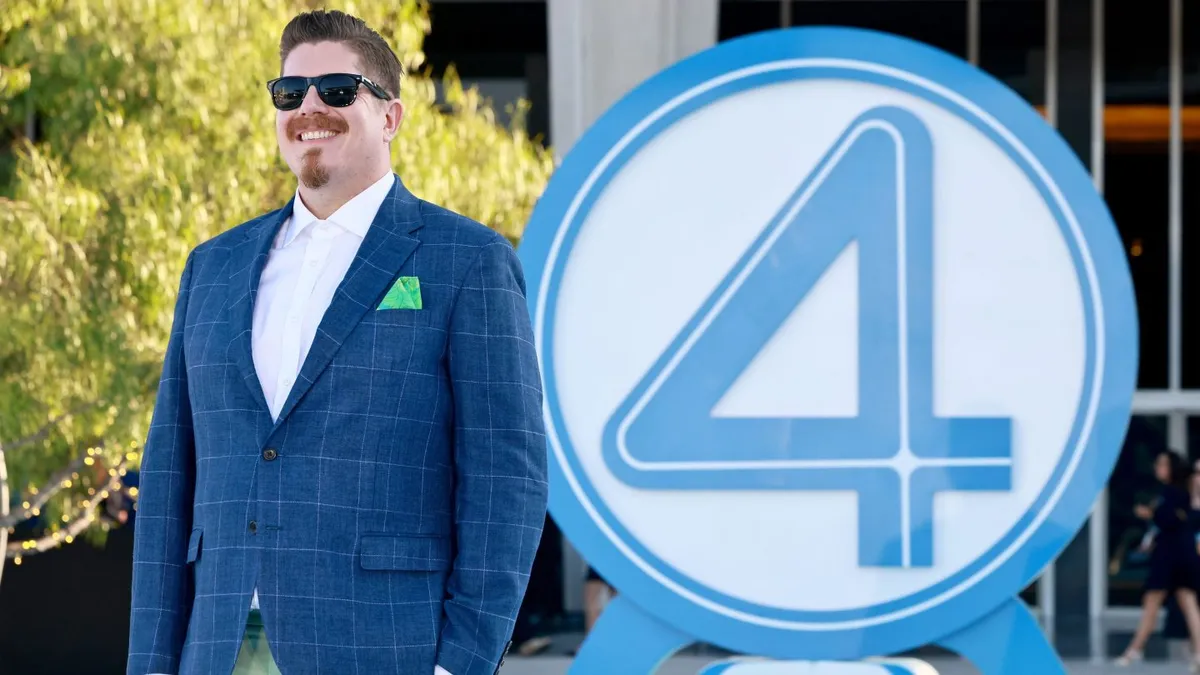
Screenwriter Eric Pearson has had an impressive journey in Hollywood, transforming from an up-and-coming writer to a prominent figure at Marvel Studios. Nearly 15 years ago, Pearson embarked on a unique mission: he spent an entire week watching Captain America: The First Avenger in five-minute increments. His goal was to identify split-second moments where star Chris Evans could add lines such as “head to the base!” during the ADR process. While this task may seem like grunt work, Pearson viewed it through a different lens. He believed that every writing opportunity, no matter how small, was valuable and an essential part of the creative process.
At the time, Pearson was a fresh face in Marvel’s Writers Program, where he embraced every opportunity with enthusiasm. Fast forward to today, and he is now recognized as a go-to writer for Marvel, having penned blockbuster hits like Thor: Ragnarok, Black Widow, and the upcoming Thunderbolts and The Fantastic Four: First Steps. His contributions to the Marvel Cinematic Universe (MCU) have collectively grossed over $2.5 billion worldwide, solidifying his reputation in the industry.
One of Pearson’s notable strengths is his ability to connect with actors. Co-showrunner Tara Butters praised him for his commitment to helping actors find the best version of their characters. Pearson’s on-set presence, providing spontaneous dialogue adjustments, has earned him deep respect from his peers. An example of this camaraderie is highlighted by a birthday surprise where Butters and lead actress Hayley Atwell wrapped his office in wrapping paper, showcasing the affection he has garnered over the years.
While Pearson has made his mark in the MCU, he has also ventured into other cinematic universes. He worked on Paramount and Hasbro’s Transformers One and contributed to Legendary’s Godzilla vs. Kong. His versatility has caught the attention of industry leaders, with Mary Parent, Legendary’s film boss, suggesting that Pearson could one day step into a director's role. “He deeply understands tone,” Parent remarked, emphasizing that even his most fantastical ideas are rooted in character and humanity.
Pearson’s journey began at DreamWorks, where he worked as a reader, sifting through countless scripts. Despite the challenges he faced, including a brief stint as a pizza delivery guy after losing his DreamWorks job, he persevered. His determination paid off when he finally landed a position in Marvel’s prestigious Writers Program after a lengthy audition process.
At Marvel, Pearson embraced the studio’s unique creative process, which often involves rewriting scripts on set. His experience on the Agent Carter TV show marked a pivotal moment in his career, as he found himself making real-time adjustments to dialogue, which helped shape the final product. “It was exhilarating,” he recalled, describing the excitement of delivering lines on the fly while collaborating with talented actors like Hayley Atwell.
Pearson’s breakthrough came with Thor: Ragnarok, which established him as a recognized writer within the MCU. However, the film's success also led him down a challenging path, as he took on projects that he felt ill-equipped to handle. After a period of reflection and reassessment, he returned to Marvel to contribute to Ant-Man and the Wasp, reigniting his passion for storytelling.
His work on Black Widow highlighted the importance of collaboration, particularly with actors like Scarlett Johansson and Florence Pugh. Pearson’s ability to adapt and incorporate actor feedback into the script was crucial, especially during rehearsals that informed the final narrative. In contrast, Thunderbolts presented a unique challenge as it was initially viewed as Marvel’s B-team but ultimately emerged as a critically acclaimed project under Pearson’s direction.
As one of five credited writers on The Fantastic Four: First Steps, Pearson played a vital role in redefining key plot points, including the birth of Franklin Richards. His innovative approach to storytelling ensured that significant events unfolded against the backdrop of action, allowing for a seamless integration of character development and plot progression.
With projects like Transformers on the horizon, Pearson remains excited about the possibilities that lie ahead. Despite his success, he continues to embrace the same enthusiasm and fear that characterized his early days at Marvel. “I’m still both scared and excited, just like I was then,” Pearson shared, reflecting on his enduring passion for storytelling in an ever-evolving industry.
As Eric Pearson continues to shape the cinematic landscape, his journey serves as an inspiring testament to the power of perseverance and creativity in the world of screenwriting.